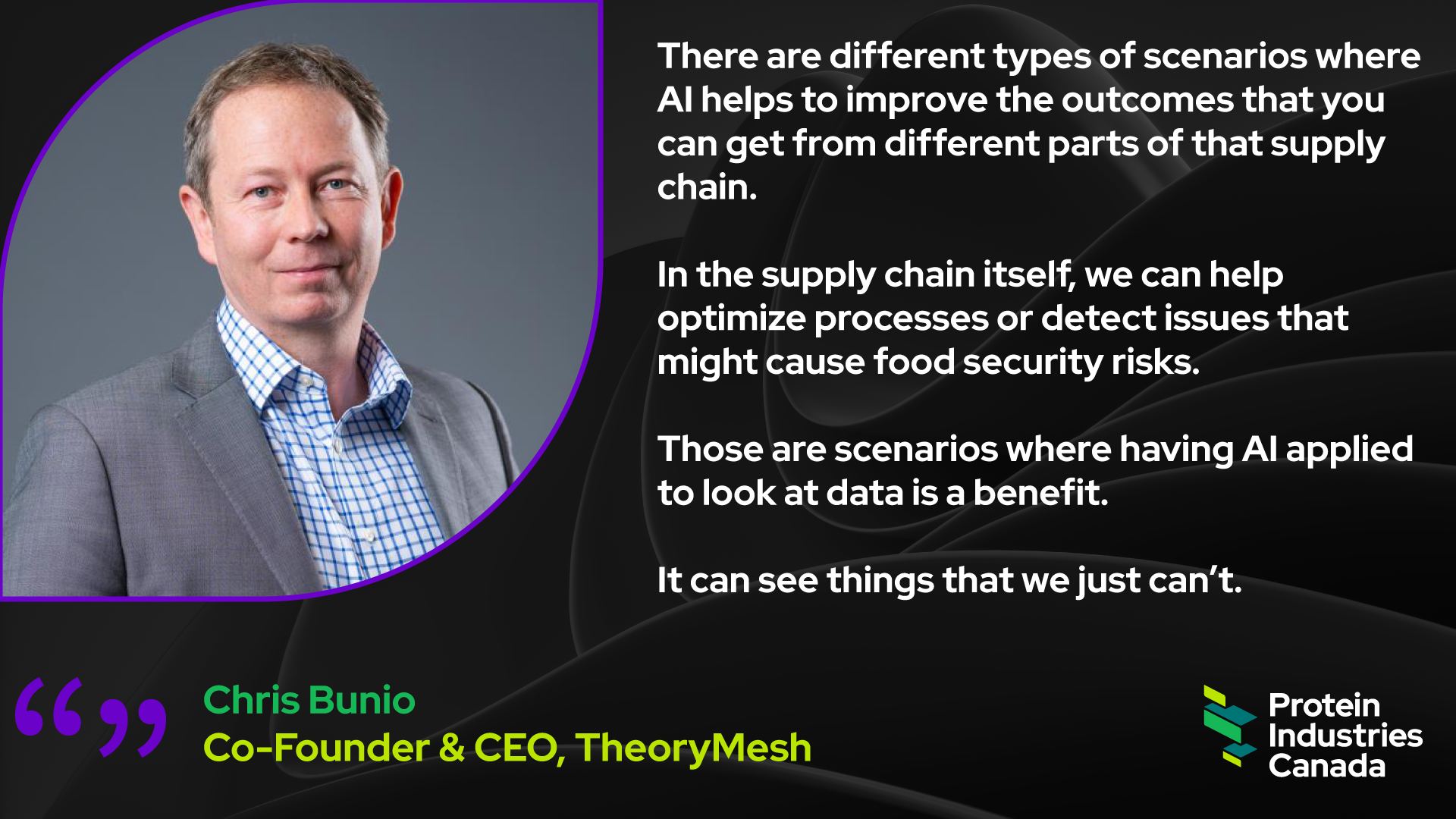AI technology taking companies and Canada to the next level
- Posted:

Canada is often looked to as an agricultural powerhouse, thanks to our high-quality food products and diverse crop offerings. But as companies across the agrifood value chain invest in new artificial intelligence tools, we have the opportunity to take that reputation one step further, into the area of a sustainability and food security leader.
Chris Bunio, co-founder of digital platform builder TheoryMesh, said achieving such a reputation begins with implementing more of the technology on an individual company level, particularly when it comes to the areas of traceability and transparency.
“There are different types of scenarios where AI helps to improve the outcomes that you can get from different parts of that supply chain,” he said. “In the supply chain itself, we can help optimize processes or detect issues that might cause food security risks. Those are scenarios where having AI applied to look at data is a benefit. It can see things that we just can’t.”
It’s artificial intelligence’s ability to see patterns and other logic that humans can’t that makes it such an optimal tool. This also makes it an exciting tool to work with, inspiring the companies Bunio’s team works with to push it to new limits.
In particular, his team has been looking at how they can move it further along the agrifood value chain. He explained that much of the work with artificial intelligence so far has been focused on primary agriculture, assessing the state of crops in the field. He and his team, however, want to take a more forward-looking approach that can affect companies further down the value chain.
“What we want to get to is more forward-looking, predictive capability, particularly being able to look at all the different variables on crop and food nutrition,” Bunio said. “One of the theories that I have, and other people maybe have, is that farm practice, farm soil type and farm applications all affect crop nutrition, and that crop nutrition affects how crops can be turned into protein products and other food products.”
While artificial intelligence technology brings with it a wide range of potential benefits, Bunio doesn’t recommend a company jump into investing in it without a sound plan in place. Developing and implementing the right artificial intelligence tool for a company’s work takes both thought and time. While it’s a worthwhile endeavour, it’s not a quick and easy one.
“The best step is just to do a little bit of work to understand what AI means for your company,” Bunio said. “It doesn’t save the world or change the world without people having the right kind of use cases in mind, so it’s important to understand … how it’s going to be applied, why it’s going to be applied and what benefits you’re looking for from it.”
Protein Industries Canada has a program that can help companies across Canada’s plant-based sector develop and adopt artificial intelligence technology. To learn more about it, including how to apply, visit www.proteinindustriescanada.ca/artificial-intelligence.
To learn more about TheoryMesh, visit theorymesh.com.
